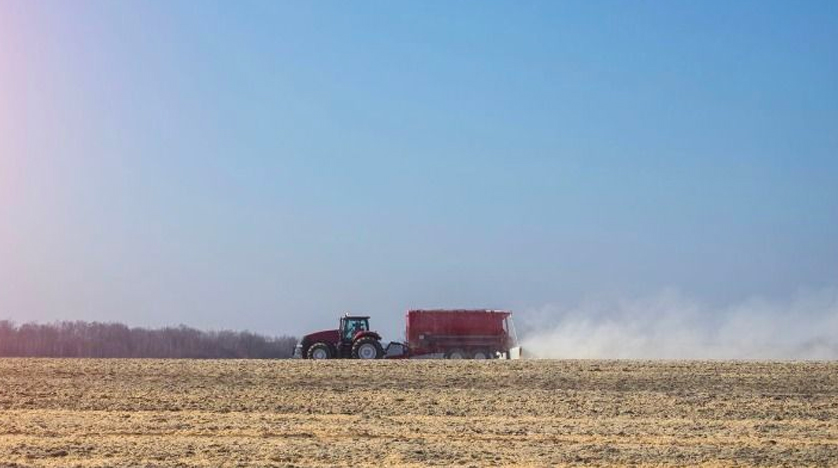
Posted August 4, 2014
Category(s) Industry News Materials

Here in the northeast, we’re not unfamiliar with periods of heavy rain – especially throughout the summer months.
Unfortunately, this type of weather can actually raise the acidity in our soil, creating less-than ideal growing conditions for crops, and even for residential lawns.
In order to combat these conditions, many farmers and homeowners look to agricultural limestone. Sometimes referred to as “aglime”, this valuable material is a soil additive that’s comprised of crushed, or pulverized limestone.
Due to its high composition of calcium carbonate, the material is able to neutralize the soils pH levels. When applied correctly and regularly, agricultural lime can prevent the soil from becoming too acidic, while also improving the uptake of important plant nutrients.
Understanding how agricultural lime works and what it can accomplish is the easy part. Where people find themselves confused is when they’re faced with the decision to choose between traditional aglime and hydrated (liquid) lime. Some of the most common questions we’ve seen are:
In order to help you make the smartest and most effective choice for your soil, we’ve decided to compare agricultural limestone vs hydrated lime.
Agricultural lime is the most commonly utilized additive for improving the health of the soil. It is simply limestone that has been crushed down to an aggregate size. The material is worked into the soil, and reacts when introduced to water.
Agricultural lime has been in use as far back as ancient Roman times, and has proven time and again to be an extremely effective and efficient method for achieving balance in soil pH.
The material is easy to work with and, when thoroughly mixed into the soil, can begin to work relatively quickly. As the material dissolves, it will begin to raise the pH levels of the soil directly surrounding it. Noticeable results can be detected within a few weeks of the agricultural lime’s introduction.
In order for agricultural lime to be effective over the long run, ongoing tillage and mixing is necessary. Due to the fact that limestone dissolves very slowly, it’s only able to neutralize soil acidity in the earth directly surrounding each particle of lime. Regular tillage operations allow the particles to be redistributed, thus bringing them into contact with more acidic soil. In fact, when regularly maintained, aglime is capable of continuing to raise the soil’s pH for as many as four years after the original application.
Hydrated, or liquid, lime is a mix of 50% agricultural lime and 50% water. The liquid lime can then be sprayed upon the surface of the soil.
One of the key advantages of hydrated lime is that the liquid state of the material makes it easier to provide increased uniformity of spread over the field or yard than with traditional agricultural lime. Another benefit to utilizing liquid lime is that, due to the high water content, the material is actually able to react faster, yielding quicker positive results on the soil.
Although hydrated lime is able to work more quickly than agricultural lime, more frequent lime applications are actually required in order to maintain the positive effects. In addition to this, liquid lime often comes with higher operational costs since both water and lime must be toted across the field.
While it’s true that both agricultural limestone and hydrated lime both have their merits, it’s important that you carefully calculate your needs and preferences before making a final decision.
Typically, agricultural limestone is a great long-term solution, and when properly maintained, will keep your soil healthy and vibrant for years at a time. Because of the higher costs, hydrated lime may not be a practical, sustainable solution for very large fields. Instead, it can be used in conjunction with agricultural lime in order to quickly raise the pH, with the aglime providing lasting results.
Liquid lime is also great for smaller areas of land, such as residential lawns, that need a temporary boost in pH levels for improved health. In order to make your investment in lime as cost-effective as possible, you should compare the total neutralizing power/unit weight of each, as well as the cost/unit weight of each.
Be sure to talk to a local agricultural lime expert for further advice on which material is best for your purposes, and which is most economical.
After more than a century in the business, the team here at Braen Stone is equipped with the knowledge to answer all of your questions. Our team would be excited to work with you on your upcoming agricultural lime project.
Our core delivery areas for agricultural limestone include NJ, NY and Eastern PA.
VIBRATION CONCERNS SUPPORT NUMBER
973-720-7094
Thank you! Your form was submitted successfully.
There has been an error submitting your form.